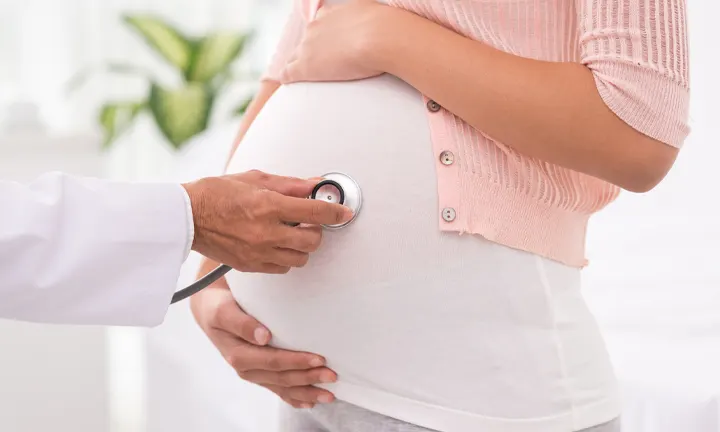Anaemia In Pregnancy: Symptoms And Treatment
Mommy-to-be, it’s not an unknown fact for you that during pregnancy, your body goes through multiple changes. While some changes feel like a cakewalk, the rest are like a roller coaster ride. Anaemia is one such condition that belongs to the latter half and might come your way. But there’s no need to be alarmed. Having a keen understanding of anaemia symptoms in pregnancy can help you keep additional problems at bay. So, keep reading to know more!
What Is Anaemia And The Cause Behind
Anaemia is a condition in which your body doesn’t have an ample amount of red blood cells to carry oxygen to the body's tissues. During pregnancy, this additional blood plays a crucial role as it supports the growth of your little one. In case, your body doesn’t get the required amount of iron, it hinders the production of red blood cells. This affects your nerves and muscles, thereby leaving you feeling exhausted. If this condition is left untreated, it can become serious, causing complications in your pregnancy like premature birth, low birth weight, and is very rare cases even maternal mortality.
Types Of Anaemia During Pregnancy
There are majorly three types of anaemia during pregnancy as follows:
Iron-deficiency anaemia Iron deficiency anaemia is one of the most common types of anaemia in pregnancy. In this type, your body lacks iron which reduces the production of haemoglobin - the protein present in red blood cells that carries oxygen from the lungs to other parts of the body.
During pregnancy, these red blood cells are majorly used for the development of your baby. If you already have extra red blood cells stored in your body, before you get pregnant, then you aren’t at any risk. But for women who don't have enough iron stores, have a possibility of developing iron-deficiency anaemia.
Vitamin B12 deficiency Vitamin B12 plays a vital role in the production of red blood cells. If your pregnant body isn’t well-equipped with this vitamin, it leads to lower production of healthy red blood cells. All of which leads to the condition of anaemia. Thus, it becomes prudent to eat fortified foods like milk, eggs, meats, and poultry. These can help you deflect vitamin B12 deficiency. Women with this type of anaemia can be at a risk of dealing with birth defects, such as neural tube abnormalities or preterm labour.
Folate deficiency Folate deficiency is also one of the most common kinds of anaemia found in pregnant women. Largely, it’s a water-soluble vitamin that aids cell growth and helps prevent neural tube defects or cognitive brain issues. During pregnancy, your body demands a higher level of folate. Thus, it is advised to take folate supplements even before you get pregnant.
What Are The Symptoms Of Anaemia In Pregnancy?
If you are a pregnant woman dealing with mild anaemia, then there might not be any clear symptoms as such. But, in case your blood cells drop, these are anaemia symptoms that you would want to look out for:
Pale skin, nails, lips, palms of hands, or underside of the eyelids
Excessive weakness or fatigue
A sensation of spinning (vertigo) or dizziness
Rapid heartbeat
Unable to concentrate
Shortness of breath
Cold hands and feet
Cravings for inedible items like dirt or clay
Regardless of whether you are facing these anaemia symptoms in pregnancy or not, a blood test will help you diagnose this condition better. These blood tests include
Haemoglobin: The iron-rich protein that carries oxygen from the lungs to tissues in the body.
Hematocrit: It indicates the percentage of red blood cells present in a certain amount of blood.
In case you are worried about your level of fatigue or any other anaemic symptoms, consulting with your doctor is the best option.
Risk Factors Of Developing Anaemia During Pregnancy
The probability of you running into the risk of anaemia during pregnancy increases in the following scenarios:
If you are pregnant with two babies
If you have two or more pregnancies in quick succession
If your body lacks iron
If you have experienced heavy menstrual blood flow before becoming pregnant
If you are frequently vomiting due to morning sickness
Ways To Prevent Anaemia During Pregnancy
Taking prenatal vitamins can help prevent iron deficiency. But largely, nutrition is the key to prevent anaemia in pregnant women. You need to indulge in a well-balanced, healthy diet containing high sources of iron and proteins. Try to incorporate the following iron-rich foods in your diet:
Lean red meat, poultry and fish
Dark green, leafy vegetables
Legumes
Iron-enriched white bread, pasta, rice, and cereals
Nuts
You can also indulge in vitamin C rich food which absorbs more iron. Here are some of them:
Citrus fruits or juices
Berries
Kiwis
Tomato
Bell peppers
Keep in mind that before adding these foods to your diet, you must consult with your doctor to avoid any allergic reactions.
The Long Short
Mommy-to-be, you need to understand the importance of indulging in good nutritious food. One which is rich in iron, folic acid, and vitamin B12. You need to eat well, not just for yourself but also for your precious little one. All in all, keep your red blood cells in check and be rest assured to give birth to a happy and healthy little angel!
